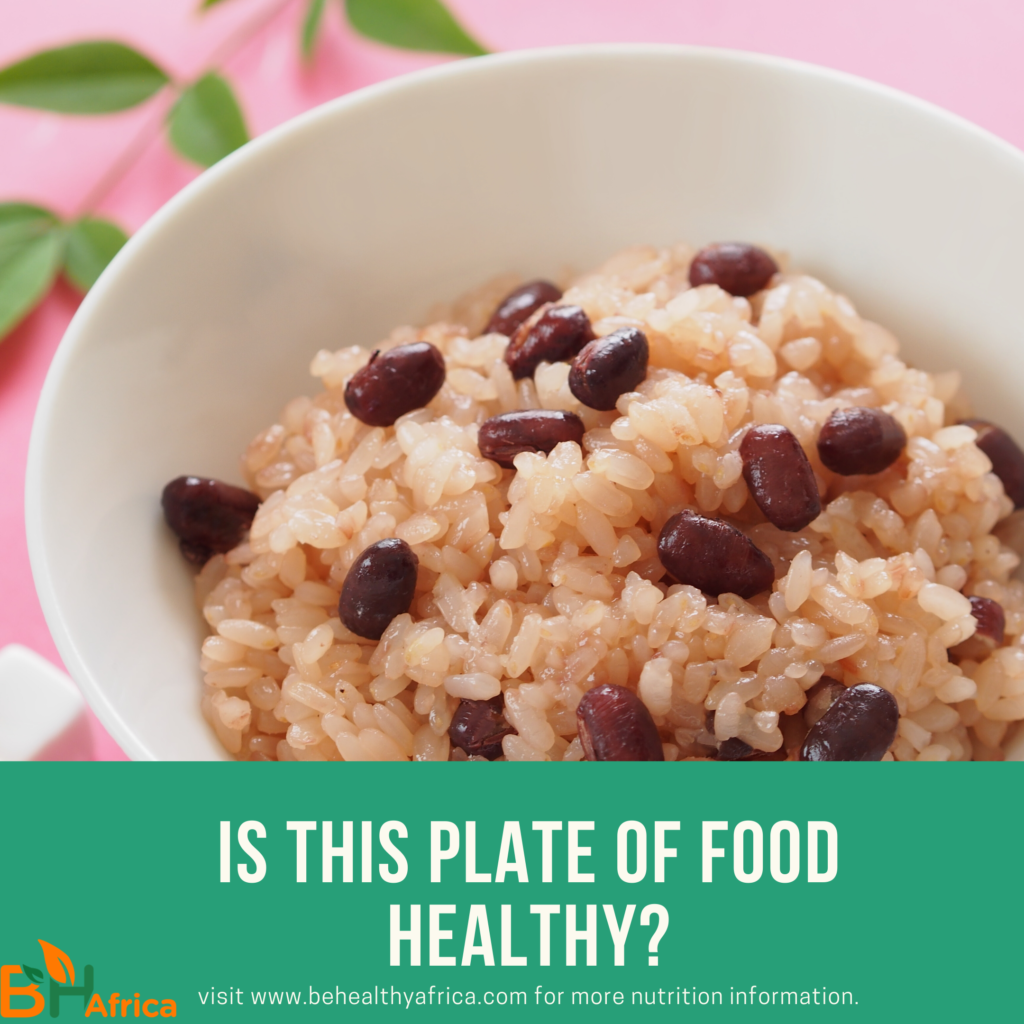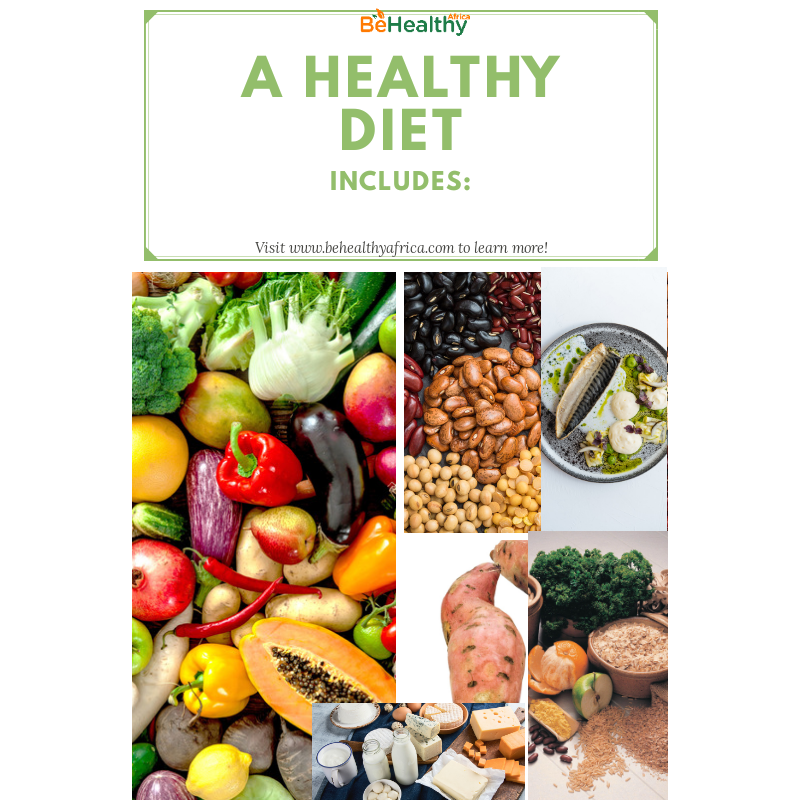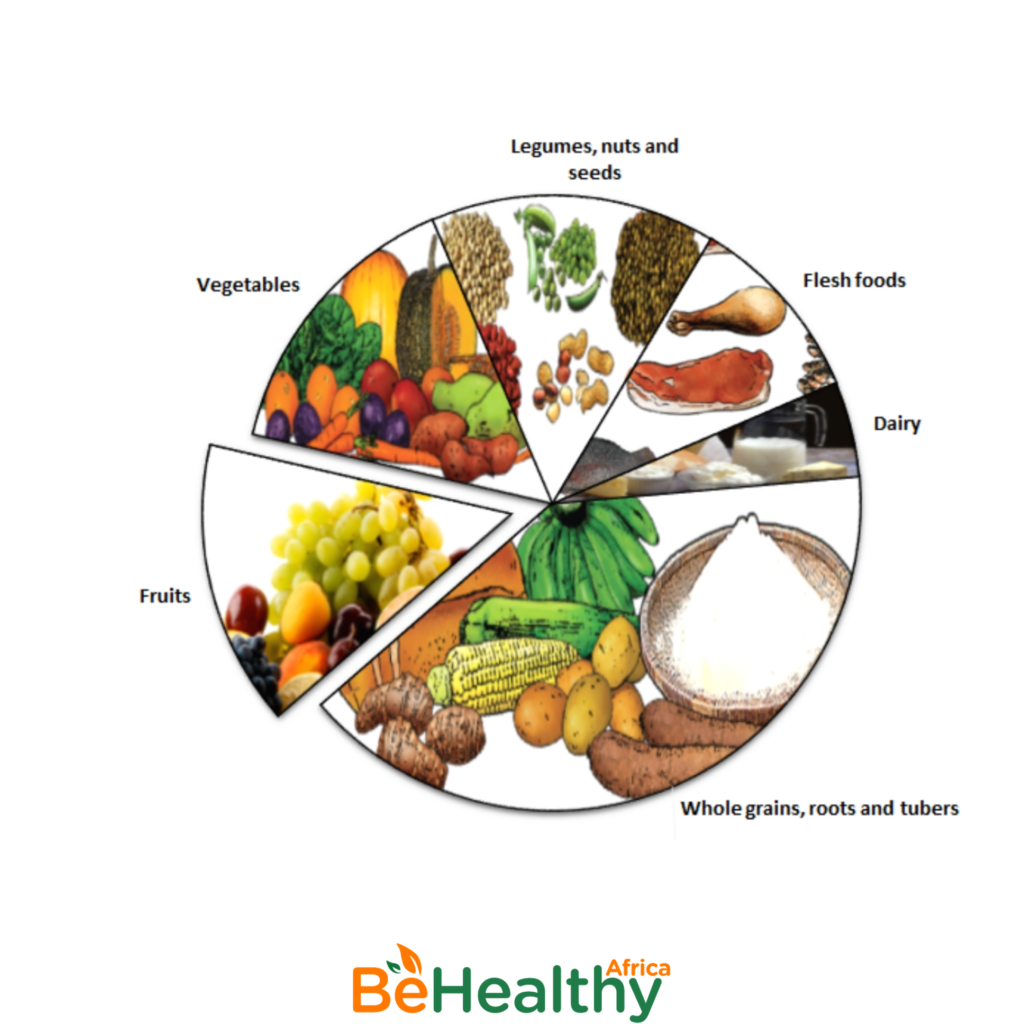
It is very important to know how to judge if your meals are healthy or not. Knowing is a part of what empowers you to make better choices and take better decisions about how you nourish your body.
Poor diets are a major risk factor for Non-Communicable Diseases (NCDs) such as Diabetes Mellitus, Cancer, heart diseases, chronic respiratory diseases. In Nigeria, NCDs account for 29% of all deaths (WHO). Our health system is not strong enough to handle the growing burden of NCDs in addition to the high rates of communicable diseases like diarrhoea diseases, malaria etc.
Some risk factors for NCDs can be modified. That is, you can do something about it. One of them is Poor diets. If you start to eat healthy, over a period of time, you would see the remarkable benefits on your health and wellbeing.
What is a Healthy diet?

A healthy diet is one that provides you with an adequate amount and variety of nutritious and safe foods to meet your energy and nutrient needs. In addition, it protects you from malnutrition and other diseases such as NCDs.
A healthy diet also improves mental development and helps you give your best by enhancing your productivity. Healthy families spend less money on medical costs.
A healthy diet should contain:
- Whole grains, roots and tubers such as rice, maize, millet, yam, sweet potatoes
- Legumes, nuts and seeds such as beans, melon seeds, groundnuts, dika nuts
- Fruits such as mangoes, pineapples, citrus fruits
- Vegetables such as leafy vegetables, cucumber, cabbage, carrots
- Animal-sourced foods such as fish, beef, eggs, offals
- Dairy like yoghurt, milk, cheese
So, how can you know if your meals are healthy?

Here are some principles of a healthy diet:
- Quantity
That plate you have before you? Does it contain all the nutrients (carbohydrates, protein, vitamin and minerals, etc.) to meet your needs? If you eat more or less than your body requires, it could result in malnutrition. What out for overconsumption of fats, sugar, salt. These are not good for you in large amounts. Go to the different food groups to see more about quantity to consume.
- Quality
Your body needs whole foods that can nourish your body. Your foods should not contain unhealthy additives. It should be free of trans fats (man-made fat found in margarine, fried fast food), antinutrients (plant chemicals in food that block your body’s ability to use the nutrients) etc. Also, When you go for ultra-processed foods which have been stripped off important nutrients, the quality of your meals reduces. E.g. if you process cereals like sorghum, corn, certain antinutrients are removed which allow your body to use nutrients like iron and zinc. However, if these cereals are over-processed, it can lose lots of fibre and other important nutrients making it low quality.
- Diversity
When you eat daily from the different food groups such as fruits and vegetables, whole grains, roots and tubers, legumes, nuts and seeds and animal-source foods, your diet would be diversified and contain the different nutrients to nourish and protect your body.
- Safety
Your foods should be safe to eat. This means that they should not contain physical contaminants like dirt; or chemical contaminants like pesticide. Also, foods that are spoiling or spoiled should be discarded and not cooked for consumption. Hygiene when handling and preparing foods is important for health. Diarrheal diseases, which can be as a result of poor food safety, is a major cause of death among children in Nigeria.
In a Nutshell
To judge if your meals are healthy, think quantity, quality, diversity and safety. Look at the various food groups on www.behalthyafrica.com to learn more.
As always, I encourage you to eat better and live better.



I have been weighing everything before eating. I use a variety of tools that give nutritional information. My question: does cooking a certain food increase the amount of calories? Not including any additives such as oils, or spice.
Apart from added fats and oils that increase calorie content of foods, some foods lose water weight while cooking and this causes an increase in calories when you check. Also, some nutrients become more available after cooking.